The wildfires of the “black summer” were a game-changer for Australia, and they had a large emotional toll on those affected. Go behind the scenes with the filmmakers of Australian Bushfire Rescue, as they discuss the challenges of filming and the heart-wrenching stories they encountered.
Features
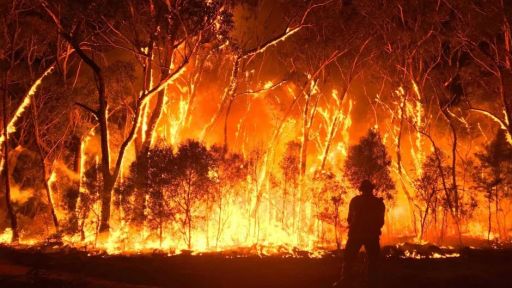
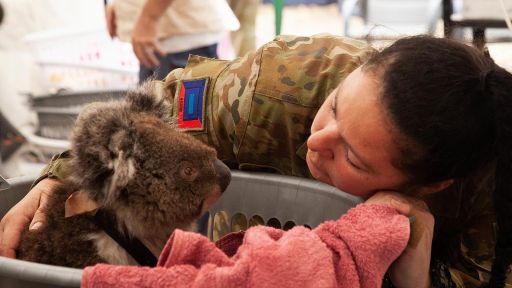
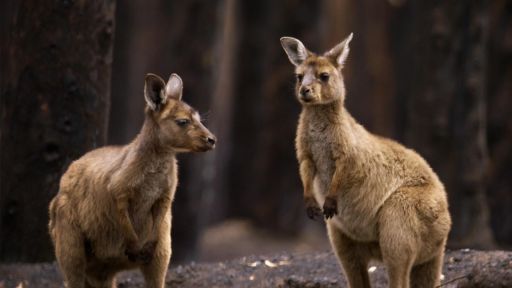
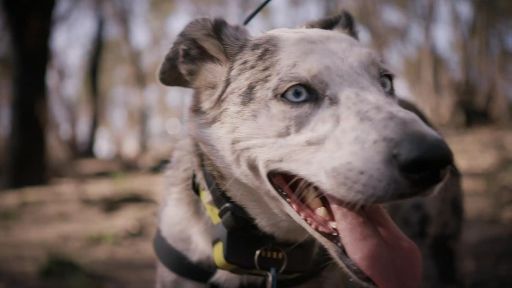
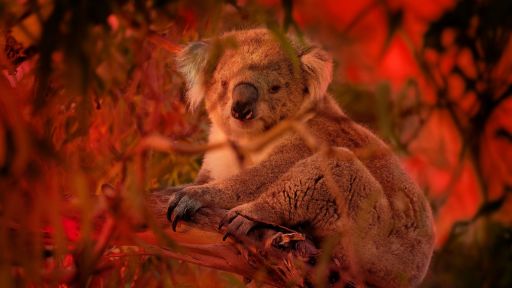
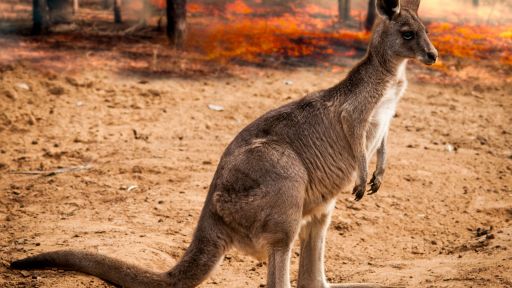
There's no doubt that this fire, the 'Black Summer,' was an absolute game changer.
And the emotional impact it had on people, as a producer making the film, it was heart wrenching really to watch your own country just burn and know the reasons why, and have that feeling of not being able to do anything about it.
So I guess what we do is try to document and record truthfully and honestly, and report faithfully to the rest of the world that this will be a game changer and that we will do things differently on the back of this.
- One of the reasons that I really wanted to take this project on was that what I could see in all the human characters that we had who were stepping up and saying, 'We're part of the problem, we need to be part of the solution,' that gave me hope.
I saw a humanity that I haven't seen for a little while.
I saw people really caring for our native wildlife, and I thought this is something actually quite important to share.
- I really hope that people watching the film will come away with a sense of how important it is to put that effort and time into saving every single soul that you can.
Also, to come away with an understanding of what an enormous loss it is to have that many animals wiped down in a fire because they're all wonderful creatures.
- I shoot a lot of natural history, I guess, but often it's observational.
The animals are kind of far away and completely wild, and we were trying to film wombats that at a property where it was kind of, I guess, a sanctuary of sorts.
They were wild animals in natural burrows but, of course, they kept approaching the camera and actually became quite difficult to film a minute in a way that seemed natural.
- (clears throat) You're gonna be very annoying.
- Usually, it's trying to find the animals, you might spend hours and hours just to steal a few shots.
And in this case we had the animals and it was the opposite, we needed to try to push them away from us in order to get the shots we needed.
So it was completely different to what would usually happen.
- [Narrator] In the absence of their natural mothers, young wombats will bond with human carers.
- Everyone loves the koalas and the kangaroos of course, but the heroes, to me, are the wombats.
They onscreen, Wonder and Ben are adorable.
But some of the things that didn't make it onscreen were them almost harassing the crew is that we're trying to film them because they're just such curious animals.
- I've lived in Australia for a long time and I've never actually come across a wombat before.
So when I filmed with Wonder, that was just a completely new experience for me.
And I never realized that wombats are such characters.
They kind of like a cross between a toddler and a dog, and kind of naughty.
- (laughing) Hey, do you want me to come?
Oh, no that's not gonna help. - No, it's all right.
They'll be used to me in a second and then (mumbles). - Good.
- Wonder and Ben were so curious that it was almost impossible to film them because they wanted to have a look at the camera.
It took us a long time to actually get the shots.
- The behavior we saw from the animals different to what I'm used to seeing.
And it's kind of hard to quantify whether that's because they're literally reaching out for help and they recognize in us another animal that's able to help them, and they must have seen some horrific or been through a horrific kind of experience.
So it's probably not that surprising that they're behaving differently, but it's certainly nothing that I had experienced before in many years of filming wildlife.
It's traumatic from the camera perspective too.
- The first shoot that we did on Kangaroo Island, I got a call back in the Sydney office from Anya who was our producer on the ground telling us that they'd filmed some amazing things that day.
They'd filmed koala rescues and they had seen a couple of joeys being rescued and the mothers, the joey's mothers couldn't be saved.
And then her voice started to shake a little bit.
- When we walked through this plantation, we saw a kangaroo in the distance and it was lying down and we were all feeling happy at first we thought, Oh, it's a kangaroo who's just having a rest and there it is with its joey and oh, look there's another kangaroo just lying nearby with its joey.
But as we walked closer and closer and the kangaroo wasn't getting up, we realized it must be quite severely injured not to be able to get up to hop away.
What we saw in the field that day was honestly the most confronting thing I've ever seen in my life.
So they've just found a mother kangaroo with the joey and she's got a, (weeping) her feet are completely burnt off.
The joeys look fine, but they still have to be caught.
And there's another mother lying behind me who looks like she's in the same state.
- I knew we had about half an hour to 45 minutes to wait for the guy that ran the wildlife sanctuary to come and help us with with his tranquilizer gun.
So I kind of moved away from all of the people for awhile just to separate myself and just try to concentrate on getting some really nice shots without interaction, just watching the joeys and the mother.
So I was on my own watching those roos probably 100 meters from everybody else for at least half an hour, and watching the joeys nozzle up to the mom and to look on the mom's face through a long lens.
And I definitely had some tears in my eyes which is a first for me, you can almost feel the pain of what she must've been through.
Yeah, it was a difficult day for sure.
(suspenseful music) - Euthanasia is the only humane solution.
- Humanity's at its best when there is some kind of crisis.
And we see it time and time again that communities band together and help other people.
And in this case, it was a community banding together to help the animals.
And I think I suspect that particularly that family we were filming with on that particular day, they never had thought of themselves as being wildlife rescue was before that day.
So I brought out something in them that they didn't even know existed.
That'll be changed forever from that experience, I think, and particularly the children who were of an age that would have had a big impact on their lives, and they'll never forget that.
- When we started making this film, there was one really big crisis on our minds which was the bushfires and its effect on the animals, and I guess that's why we're making the film.
We really had no idea that only a couple months into it, with some of you facing this other global catastrophe.
- We basically headed off on the shoot and then COVID hit.
So we were confronted with the situation of having to wait for it to be safe to film, and there was this narrow window of time where we could go in and capture what had gone on.
- I don't think any of us anticipated how quickly it would arrive in Australia and how big an impact it would have.
- Basically, we were sort of the last people in and the last people out of Kangaroo Island in this week of Last Chance to See.
- So we actually got access to see a lot of the recoveries that other people didn't.
So it was very lucky for us, and we took good precautions and we came home safe and well.
But the airports were just completely empty when we flew back.
The funny thing that did give me hope was coronavirus.
The way that everybody responded on mass in such a diligent and rapid way to really get a handle on it here in Australia made me have hope that we could take really severe action on other things.
- Straight up.
- There are people working hard to say, 'Until we deal with climate change, we also have to work out how do we keep these species alive?
What's the lifeboat that we build to keep these species alive until we can bring the climate back?'
